Duran Duran and the Dawn of Digital Music Sales in 1997
In July 1997, N2K and Liquid Audio announced a way to sell digital songs online for 99 cents a pop. Soon after, Duran Duran became the first major label artist to release an online single for sale.
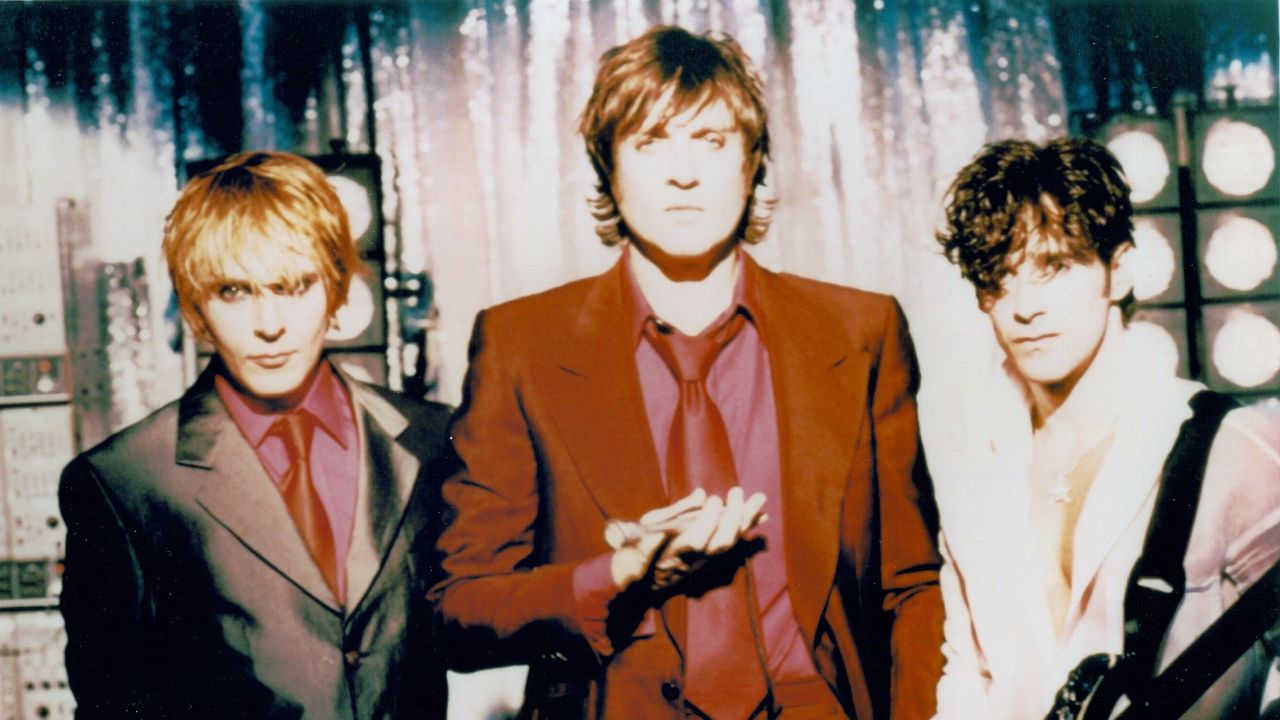
At the same time as the prototype of BowieNet was being developed, key advancements were being made in online music distribution — a trend Bowie had helped kickstart the previous year with the free Telling Lies download. The two companies responsible for that project, N2K and Liquid Audio, were in the thick of it again.
In July 1997, N2K and Liquid Audio announced a way to sell digital singles online for 99 cents. For historical context, this was a couple of years before Napster came onto the scene and over five years before Apple launched the iTunes Store. In 1997, selling music online was in its infancy — and no one company had yet cracked the code for success. The main obstacle was how to protect music copyright online; or, put another way, how to prevent people from pirating the digital music file.
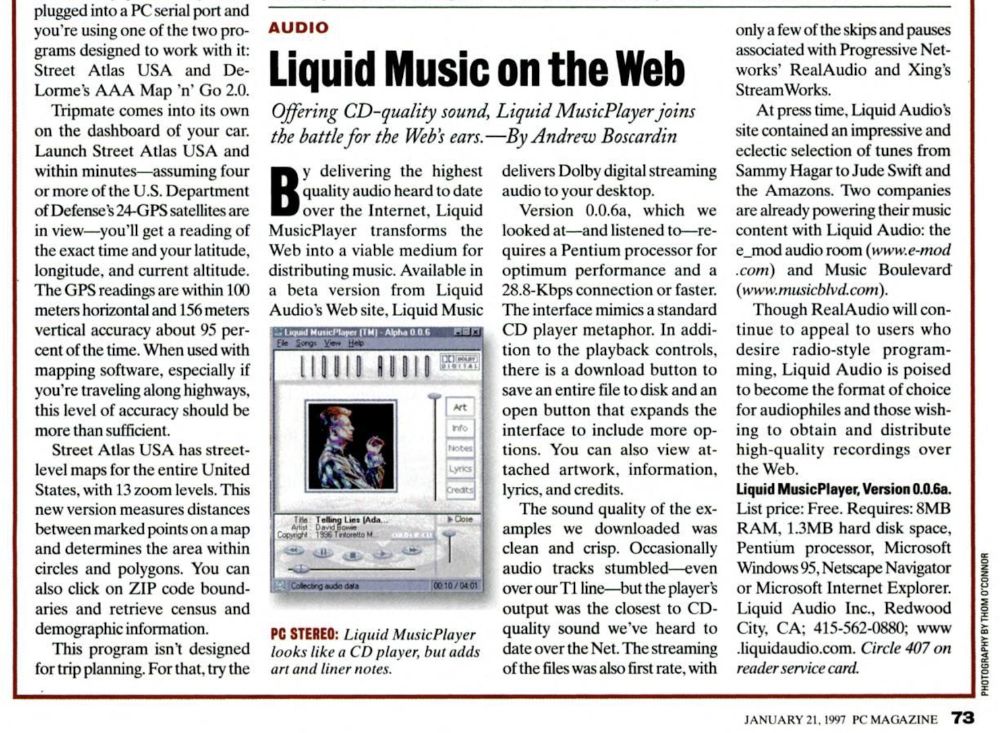
At the Intel New York Music Festival in July, N2K debuted its "e_mod" (encoded music online delivery) system for Dolby-quality downloading, built using Liquid Audio software. Notably, this software featured encryption and watermarking. It was the breakthrough that N2K CEO Larry Rosen had been searching for.
‘Telling Lies’ had proven that you could offer downloads of music online, but the problem was that it was too easy to copy the files and re-distribute them. N2K and Liquid Audio thought they had the beginnings of a solution.
Pre-iTunes Problems
However, there were a couple of catches. Firstly, only fifteen singles were available to start with on e_mod — N2K clearly still had work to do to convince record labels to get onboard.
More importantly, despite similarities to what Apple would later launch, N2K didn’t have the full holistic solution yet. It wasn’t a problem with the software — iTunes would be a digital music library and player, but N2K and Liquid Audio had built a close approximation to that by 1997. The problem was the hardware. The iPod, which would be released in November 2001, would enable people to listen to music away from their computers. Since N2K didn’t have that option in mid-1997, and because PC speakers were still relatively primitive, it had to pair its software with CD players.
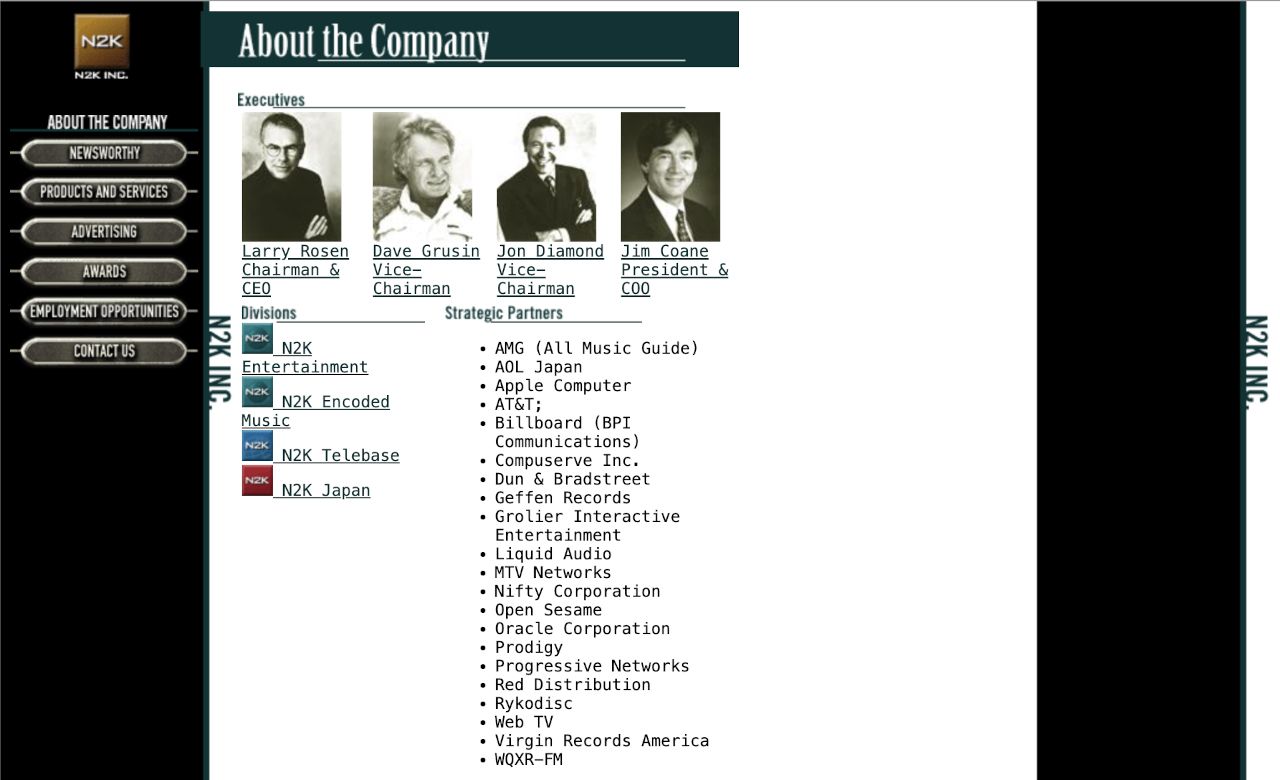
“Coupled with consumer-market CD burners priced at US$400 (also announced Thursday), N2K's e_mod signals the dawn of customized compilations track by track — the ultimate CD mix,” reported Wired in a July 18, 1997 article.
But despite still being tethered to the CD, N2K and Liquid Audio leaned into the online sales aspect of e_mod.
“This is the end of the days when music fans had to spend $16 on a CD for one song,” Liquid Audio CEO Gerry Kearby optimistically declared.
The main reason selling singles online hadn’t been done before was that record labels were afraid of internet piracy. N2K and Liquid Audio thought its proprietary encryption and watermarking software would help assuage the music industry. “Consumers have to create a personal account to download e_mod, which lets the company track down the source of pirated CDs,” reported Wired. “Additionally, Liquid Audio's encryption prevents a track from being downloaded from the Internet more than once.”

The fifteen e_mod singles were made available through N2K’s Music Boulevard website, one of the leading online music retailers alongside CDNow. But since none of the singles were by a big-name artist (the three mentioned by Wired were Phil Ramone, Stewart Copeland, and Jonathan Butler), sales weren’t brisk in the weeks following the launch. “Where we are is proof of concept,” N2K’s Larry Rosen later admitted, adding that “this is a technology that’s showing a completely new way to distribute music and along with it, a whole new concept of how music could be delivered.”
Electric Barbarella
It took another couple of months for a major label to release an online single for sale. In September, Capitol Records announced the release of Duran Duran‘s ‘Electric Barbarella,’ the second single from the Medazzaland album, for 99 cents in the Liquid Audio format. There would also be an "Internet-exclusive remix" for $1.99. Both would be made available about a week before the single reached record stores.
(Note: By this point, N2K and Liquid Audio had fallen out with each other — so only the latter was involved in the Duran Duran deal.)
Perhaps channeling David Bowie, the band's keyboardist Nick Rhodes told Billboard that "I have always regarded Duran Duran as a multimedia band." He added, "It was only a matter of time before music was sold through the Internet, and Liquid Audio has provided the sound quality to make it possible... Over the coming years, I'm sure that the Internet will find its way into most people's living rooms."
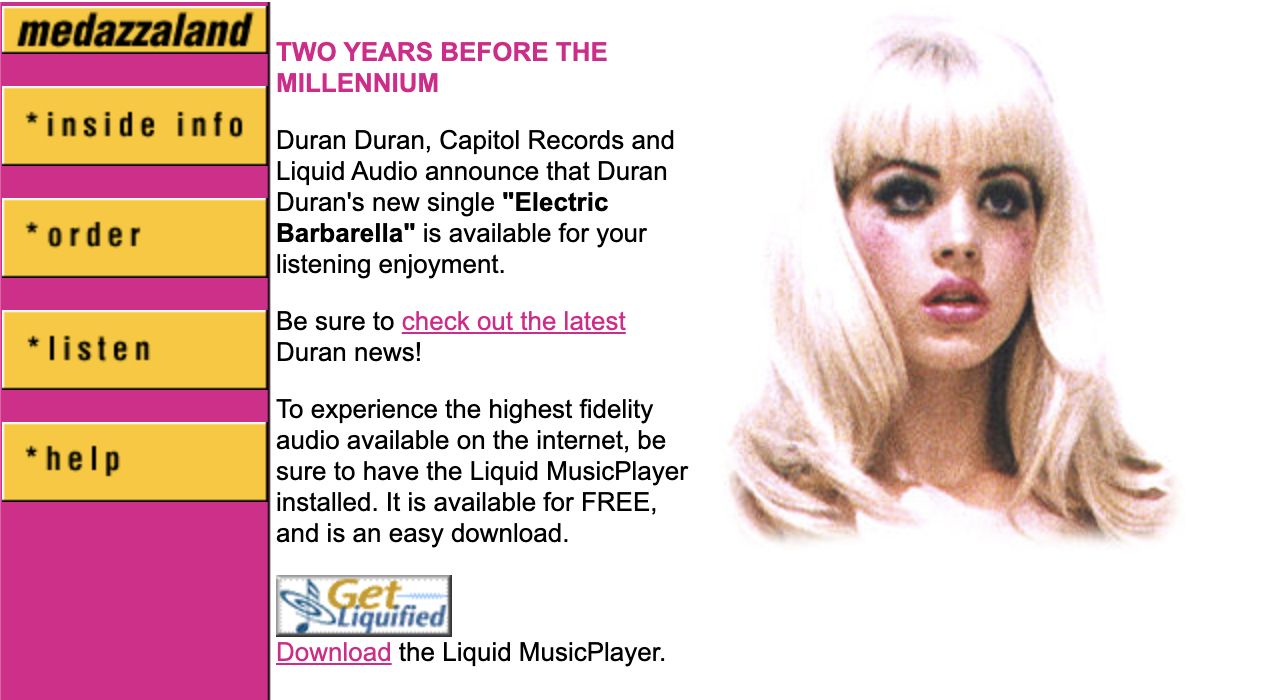
Capitol Records head of new media, Robin Sloan Bechtel, later told Billboard that although Duran Duran's online single received a lot of positive press, there was “chaos internally because we had disrupted the status quo and upset the record stores.” Retailers were deeply unhappy and they didn’t buy into Capitol’s reasoning that the online release would help promote the upcoming CD album.
“To appease the retailers, Lou and Joe [two Capitol executives] delayed the release date of the digital single to be available the same day as the physical single was in their stores,” said Bechtel. “But in retaliation, some retailers boycotted selling the Duran Duran album. I think some of them even went as far as to return the CDs back to Capitol.”

Also, although the fans themselves wanted the online single, there were a lot of technical support demands.
“Obviously, to buy a digital song was new for people, technically, and they needed help as they were on different computers and operating systems, different bandwidth speeds and had different credit cards,” Bechtel said. “A lot of the technical issues were on their end, but we still had to help them so they had a good experience.”
Although consumers initially needed help buying digital music, they soon got used to it. The bigger problem was re-aligning the business interests of the record labels and Main Street CD retailers. That aside, Duran Duran and e_mod demonstrated that a digital music business model was now possible.
What Happened to N2K and Liquid Audio?
At first, there seemed to be more than enough digital business to go around. On October 4, 1997, Billboard reported on the music retailer kickback against the Duran Duran online single. Right next to that story was another one announcing N2K’s latest internet deal, with AOL. “So that actually helped people realize how important this development was,” commented Bechtel about the twin online music stories. She added that around this time, “record stores got digital strategies and websites” — meaning, retailers were beginning to adapt to the nascent online market.
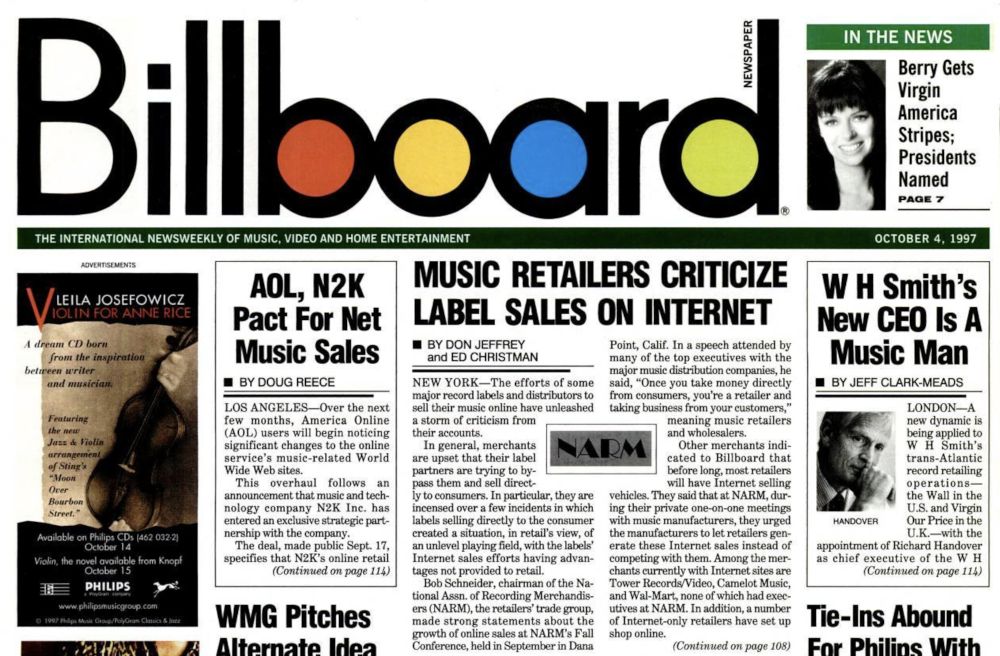
October 1997 also happened to be the month that N2K went public on the NASDAQ stock market. But it would be a tough road to profitability, because of the hesitancy of the music industry to get fully behind online music. N2K later reported a loss of $28 million over 1997. The one bright spot was page view growth for Music Boulevard. “During the fourth quarter, page views on N2K’s Music Boulevard site increased to 49.1 million from 39.6 million in the third quarter of 1997 and 10.4 million in the fourth quarter of 1996,” reported InternetNews.
Page views were one thing, but N2K needed digital music sales to take off in order to succeed as a business. Unfortunately, it was several years too early to the music download business. N2K’s ownership of the Music Boulevard website, which focused almost entirely on CDs, continued to drive much of its internet distribution revenue. But that proved to be a dead end for N2K, which was acquired by arch-rival CDnow in 1999 (CDnow was itself vanquished by Amazon soon after).
The iTunes Store, launched in April 2003, would change everything for the music industry — but some people and companies inevitably got left behind. Liquid Audio founder Gerry Kearby even switched industries after Apple's triumph, co-founding a hearing loss technology company called NeuroTone. He later died in a car crash in 2012, aged 65. In an obituary published in Billboard, his Liquid Audio co-worker Dick Wingate wrote, “Many of Liquid Audio’s accomplishments have been forgotten since iTunes became the standard for downloading music.”
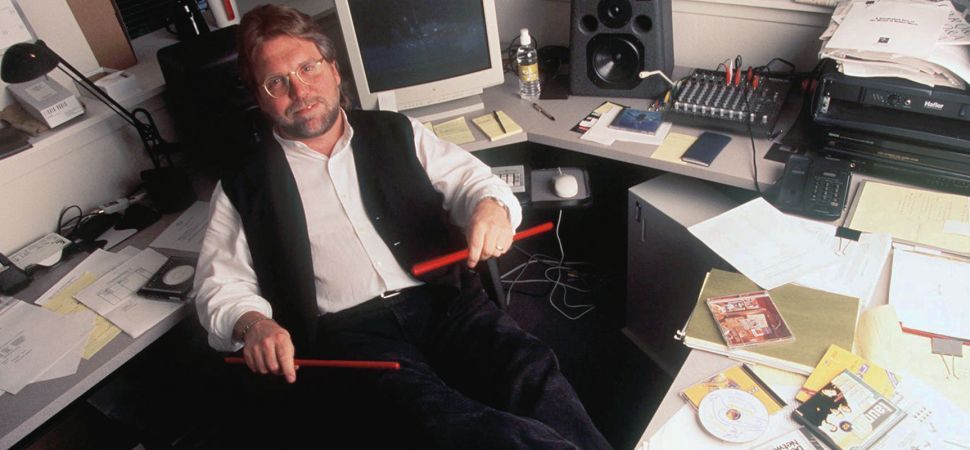
The reality of Silicon Valley is that the winners are usually the biggest companies. Only rarely does a small startup like Liquid Audio or N2K break through — even after leading the way.
Buy the Book
My Web 2.0 memoir, Bubble Blog: From Outsider to Insider in Silicon Valley's Web 2.0 Revolution, is now available to purchase:
- Paperback, US$19.99: Amazon; Bookshop.org
- eBook, US$9.99: Amazon Kindle Store; Apple Books; Google Play
Or search for "Bubble Blog MacManus" on your local online bookstore.